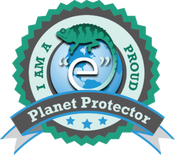|
ISO 45001:2018, Occupational health and safety management systems – Requirements with guidance for use, was published on March 12, 2018. It is designed to integrate with other ISO management systems standards, ensuring a high level of compatibility with the new versions of ISO 9001 (quality management) and ISO 14001 (environmental management). It is based on the common elements found in all of ISO’s management systems standards, and uses a simple Plan-Do-Check-Act (PDCA) model, which provides a framework for organizations to plan what they need to put in place in order to minimize the risk of harm. The measures aim to address concerns that can lead to long-term health issues and absence from work, as well as those that give rise to accidents.
ISO 45001 will replace OHSAS 18001, the world’s former reference for workplace health and safety. Organizations already certified to OHSAS 18001 will have three years to comply with the new ISO 45001 standard, although certification of conformity to ISO 45001 is not a requirement of the standard. Additional information: https://www.iso.org/news/ref2272.html. The State Council submitted a reform plan for Chinese governmental agencies on March 13, 2018. The Plan eliminates eight governmental branches at the ministry level and seven branches at the vice ministry level. As a result, the Ministry of Emergency Management (MEM) will replace the State Administration of Work Safety (SAWS), the Ministry of Ecological Environment (MEE) will replace the Ministry of Environmental Protection (MEP), and the Ministry of Natural Resources (MNR) will replace the Ministry of Land and Resources.
Additional information: http://www.xinhuanet.com/english/2018-03/13/c_137035520.htm. The National Environment Agency (NEA) of Singapore announced that it will introduce measures to ensure that waste electrical and electronic equipment (WEEE) is managed effectively and efficiently in the country. These measures follow several voluntary WEEE recycling initiatives and the final E-Waste Management System is to be completed by 2021.
NEA’s proposed measures will include end-of-life procedures for information and communications technology equipment, solar photovoltaic panels, batteries, lamps and other household appliances. The measures will also include responsibility requirements for producers of the covered electrical and electronic equipment. In addition, NEA has been working with producers and retailers to provide WEEE recycling bins to make recycling of WEEE more convenient for consumers. Additional information: http://www.nea.gov.sg/corporate-functions/newsroom/news-releases/nea-to-implement-e-waste-management-system-for-singapore-by-2021. |
Search Regulatory Compliance BlogBrowse by Topic
All
Browse Archives
January 2020
|

 RSS Feed
RSS Feed
